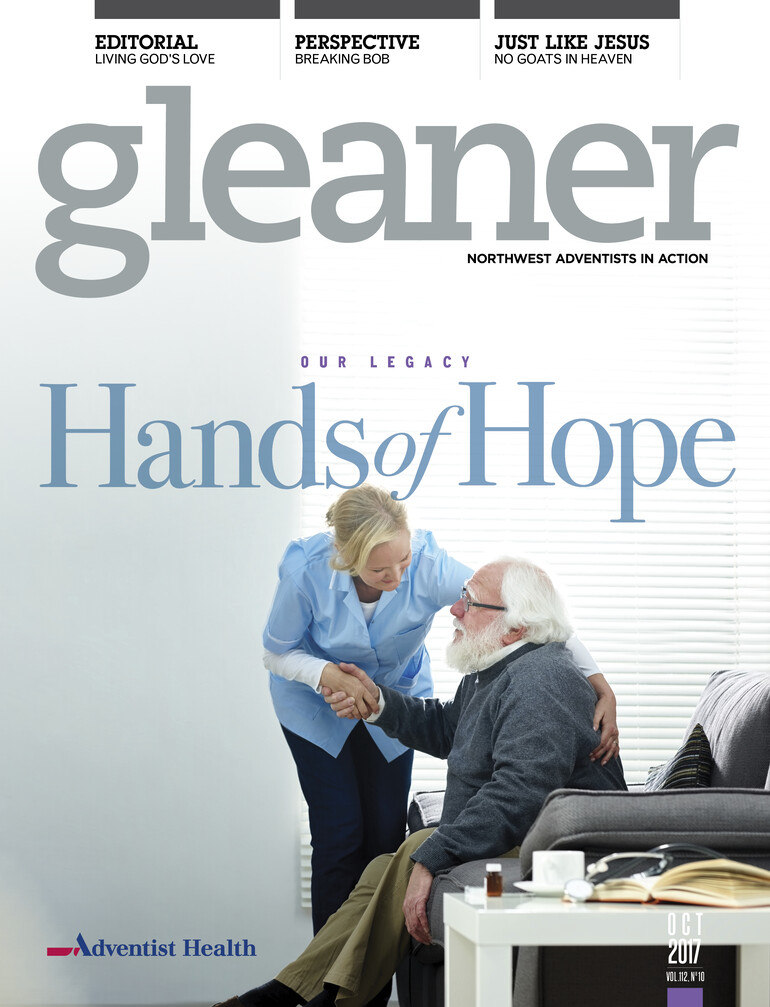What’s happening with the Seventh-day Adventist Church? Members worldwide are worried about this month’s Annual Council, where global representatives will debate what should happen to elected leaders and their constituencies who are “out of compliance” with church policy on women’s ordination.
Most of us have strong convictions one way or the other. Whatever yours may be, I respect your conscience. Seeking common ground upon which we can stand together, I’m hoping here to encourage you with what all Seventh-day Adventists have in common — no matter what gets voted at Annual Council. I’m thinking specifically about our fundamental beliefs. Based upon Scripture, they transcend all committee actions and church policies.
Christians around us believe in Jesus yet suffer confusion regarding “the truth that is in Jesus” (Eph. 4:21, NIV). But God has entrusted Seventh-day Adventists with a coherent and compelling system of truth that no other denomination offers. These doctrines are intrinsically grace-based and Christ-centered (despite being catastrophically misrepresented by well-intentioned legalists throughout our history). When unencumbered by unbiblical baggage, Adventist beliefs exude spiritual and psychological life and health. Moreover, our doctrines uniquely support God’s grand narrative of Eden lost to Eden restored.
Consider, for example, our teaching about hell. Most Christians deny God will put an end to evil. Their notion of eternal hell ceaselessly mingles screams of damned souls with the cursing of demons. And that nightmare is supposedly happening now as loved ones who died away from Jesus are already writhing in the flames.
Reforming the Reformation
Five hundred years ago this month, Martin Luther thundered in his 95 theses against purgatory, which purports that even saved people suffer in flames upon death — being purged from sin to become perfect enough for heaven. Yet some Protestants envision a worse hell for unbelievers than Catholics do — that God has predestined billions to be lost before they are even born! So the nice guy next door who plows your driveway every winter but doesn’t believe in Jesus will suffer eternal torment without even having had a chance to be saved!
Such is the good news of the gospel for those lucky enough to find themselves among God’s pre-elected saints. No wonder many thoughtful people today reject such monstrosity and despise religion. Some Christians, desperate to salvage God’s reputation amid endless tyranny, have invented a kinder and gentler hell involving eternal darkness rather than painful flames. Well, just sit inside your broom closet and shut the door for five minutes, imaging how long it would take to go crazy amid darkness that never ever ends.
Granted there are figures of speech in Scripture regarding hell that are difficult to understand — but one thing is plain: God will judge with righteousness and fairness, “not wanting anyone to perish” (Ps. 98:9; 1 Pet. 3:9).
Popular views of eternal punishment violate the gospel — the gift of Jesus Himself. People without Christ will “perish” (John 3:16) — not suffer eternal life in hell. According to 1 John 5:12, only those in Christ have eternal life to spend anywhere, in heaven or in hell. Besides, God alone has immortality (1 Tim. 6:16). How could those without Christ obtain life to spend eternity anywhere? No wonder more and more Christians embrace annihilationism. (Visit the fascinating website www.rethinkinghell.com.)
Another concern about eternal hell is its denial of Christ’s finished sacrifice. Evangelicals say Christ took all punishment for sin on the cross — but He hung there for just part of one day, not for all eternity. So if eternal torment (whether in flames or darkness) is the penalty of sin, Jesus failed to suffer adequately for our sins. This denies the gospel!
Grace-Based Truth: The Adventist Advantage
Amid popular confusion, Adventists stand united in proclaiming our loving God will not eternalize punishment for a few decades of unbelief. There will be merciful closure, with peace on the new earth forever. What’s more, we will all go together in community when Jesus comes — not float away at death as isolated spirits.
In light of such grace and truth, Adventists ought to be the happiest Christians in town. (Why are we not? That’s the subject of another column to come.) But let us beware of arrogance, since Jesus warns, “To whom much is given, from him much will be required” (Luke 12:48, NKJV).
So let us expect the best from our leaders at Annual Council this month. But in case you find yourself unsatisfied with their decisions, you can still rejoice in the fellowship of your local Adventist congregation. You can cherish and share what we all hold in common: precious Bible truth with its healing message of love and hope.











